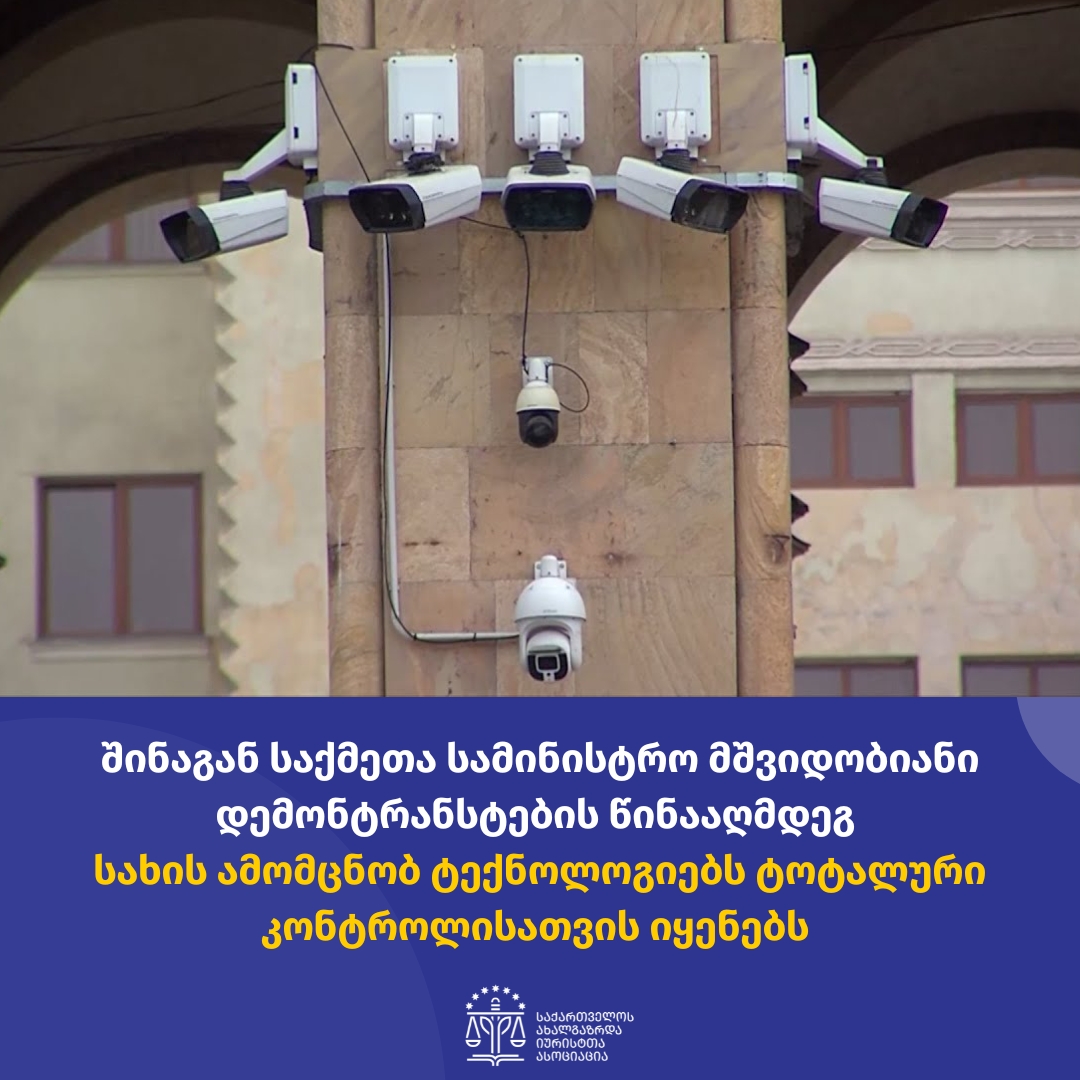NEWS

The Ministry of Internal Affairs continues the widespread use of the facial recognition cameras against protest participants during proceedings based on offences. This practice is especially noticeable in cases initiated under offences for blocking roads. Generally, in such cases, photos obtained from facial recognition cameras often serve as the only evidence, which, in most cases, is considered sufficient proof for the court to declare a person an offender, without assessing the relevant context. The court usually does not assess whether the identification of an individual was lawful or whether the person who performed the identification had the proper access to protected databases, in accordance with personal data protection legislation. This practice is intentionally used both to intimidate citizens, as well as, to control the future behavior of participants of the protest. It also has a “chilling effect”, which might manifest in self-censorship of the exercise of the freedom of expression.
During the legal proceedings of an offence case initiated on the grounds of blocking a road, it has become known to GYLA that while processing videos, the Ministry of Internal Affairs conducts targeted surveillance/monitoring of specific individuals. More particularly, in the video depicting one of the rallies of January 2025, presented by the Ministry as evidence to the Tbilisi City Court, it is recorded how one of the participants of the protest on Rustaveli Avenue is being watched live via a camera. It is visible in the recording that the camera is moving specifically in the direction in which the rally participant is moving, and later when the citizen is standing with their back to the surveillance camera and is reading a certain document, a person is zooming the camera in a way that it becomes fully detectable what the citizen is reading. This indicates that the surveillance of the movement of the rally participant and zooming specific footage are conducted in live mode. This gives us ground to believe that the camera control is being carried out mechanically by a specific person(s). The video recording shows that through zooming, it is not only possible to identify a person but also to obtain information, even if such information is not legally related to administrative offence cases. It is unclear what legitimate aim is achieved by zooming in on the piece of paper held by the rally participant standing with their back to the camera, and observing it for a certain period of time to make it possible to read the existing text.
It is alarming that the Ministry is trying to obtain personal information of the participants of the rally through this method. At the same time, this aims to instill fear among the participants of the protest that the State will not only identify them and impose a severe fine but is also watching them.
The European Court of Human Rights has assessed the analogue practice of using facial recognition technologies and live surveillance as an interference with the freedom of expression and right to private life. As established by the Strasbourg Court, the use of such technology in the context of the freedom of expression is incompatible with the ideals and values of a democratic society governed by the rule of law (Glukhin v. Russia, no. 11519/20).
According to the assessments of GYLA, all of the above demonstrates that the Ministry of Internal Affairs is collecting and processing personal information unlawfully, without legal grounds. GYLA has also called on the Personal Data Protection Service to examine whether a data protection impact assessment had been carried out in advance, and to what extent actions related to data were registered, as well as whether the organizational and technical security measures comply with the current law; to what extent access to protected information in a special electronic programme is lawfully granted based on work purposes, and whether the levels of access align with personal data protection standards. However, until now, the decision of the institution on this matter remains unknown.
GYLA once again calls on the Personal Data Protection Service to promptly and properly examine this fact and to respond to it effectively.
SHARE: